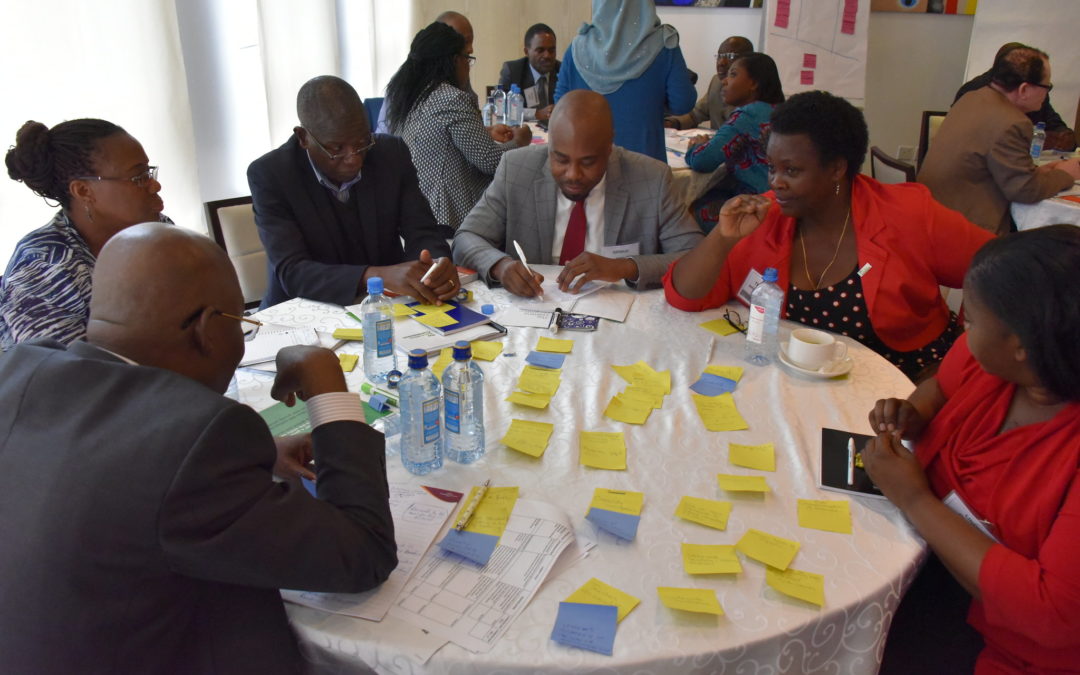The following blog is from the Foreword of the Education Commission’s new report: Transforming the Education Workforce: Learning Teams for a Learning Generation.
We live in an age of unprecedented change and disruption. In some places, cars drive themselves, drones deliver packages, and refrigerators tell you when it’s time to buy milk – but over 800 million children and youth around the world are not on track to learn the skills needed to thrive now and in the future.
With millions of precious young minds at stake, the harsh reality of the global learning crisis stands in stark opposition to the “progress” promised by the Fourth Industrial Revolution. We are running out of time to respond to one of the world’s most fundamental needs: ensuring inclusive, equitable, quality education for ALL our children.
We are just over 10 years away from the 2030 deadline to meet this goal, as outlined by the United Nations’ Sustainable Development Goal 4. How can we get there?
Teachers are at the heart of the learning process and teacher quality is the single most important influence on learning outcomes at the school level. But in many countries, teachers are in desperately short supply.
And it is increasingly evident that teachers cannot work alone.
As the African proverb says, “It takes a village to raise a child.” When this ethos of collaboration and care is applied to the learning process, we believe it takes a team to educate a child. Teachers need leadership and support to be effective at what they do best and to help reach those with the greatest needs. To build this support team, we must tap the potential of the broader education workforce – school and district leaders, specialists, learning assistants, community experts, entrepreneurs, health and welfare professionals, parents, volunteers, and many others – to create a responsive, evolving system that keeps pace with today’s changing world and equips young people with the new skills, knowledge, values, and competencies they need to succeed.
The Education Commission’s 2016 Learning Generation report called for the strengthening and diversification of the education workforce, as well as the establishment of an international expert group to take a fresh look at redesigning the workforce. Thanks to the support of the UK’s Department for International Development, the Commission’s Education Workforce Initiative (EWI) convened a high-level team of researchers, teachers, and policymakers that spent more than a year digging out data, debating, and developing new approaches to the challenges of workforce reform. The new ‘Transforming the Education Workforce: Learning Teams for a Learning Generation‘ report is the result. (It takes a team to produce a report, too.)
We are grateful to our country partners for their openness in collaborating with EWI to co-create and test concrete proposals for education workforce reform in Ghana; teacher deployment for equity in Sierra Leone; and adaptive high-touch, high-tech learning to support the STEM workforce in Vietnam.
Unsurprisingly, no “one-size-fits-all” model for education workforce design exists given the diverse social and political contexts of each country. But given the workforce is an education system’s biggest investment, countries should make it a smart one. Robust learning systems are powerful levers of change, and members of the workforce should be strengthened and empowered to be change agents themselves.
While more research and evidence is needed to evaluate the impact of newer approaches, we do know that many workforce models in use today are outdated, inefficient, and unable to respond quickly enough to the rapidly changing world around us.
The unmet promise to the world’s children for universal quality education demands a transformative response. We believe the evidence, innovations, and vision of building collaborative learning teams for a learning generation shared here are a good start.
The Education Workforce Initiative Leadership Team
Ju-Ho Lee, Chair
Susan Hopgood, Vice-chair
Theo Sowa, Vice-chair
Download the new report, learn more about the Education Commission’s Education Workforce Initiative, and read other recent blogs about the report.





Very poor salary pay and miserable welfare of the teaching staff in Africa,particularly in Uganda has greatly contributed to the discouragement of teachers performance in classes.
Do something to moral boost the teachers please.
Government salary alone can not sustain teachers.There is need to support the teaching staff through micro credit schemes,so as to build and boost the educational and economic wellbeing of teachers and possibly place their children on a sustainable path of development in the educational line of work.